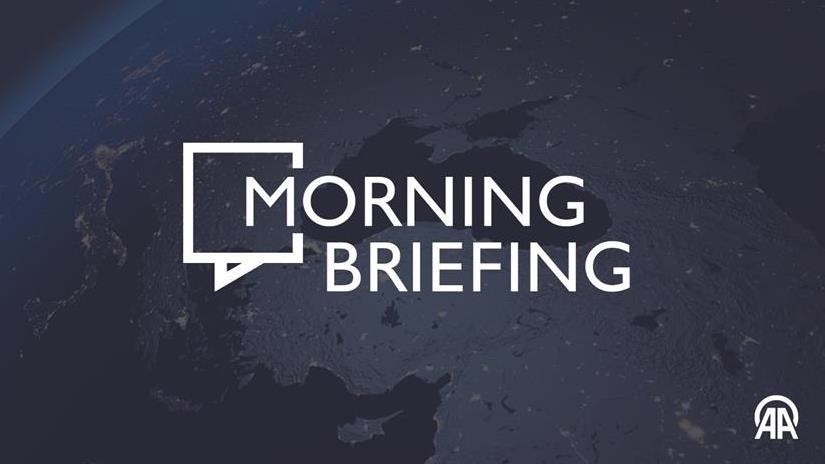Global Courant
The International Monetary Fund (IMF) has completed its Article IV assessment of South Africa, warning that the country faces near-zero economic growth in 2023 and conditions are likely to deteriorate further without much-needed reforms.
The IMF noted in its assessment that South Africa’s economy faces increasing economic and social challenges.
Growth slowed from 4.9% in 2021 to 2.0% in 2022 as the country was ravaged by the Russian war in Ukraine, a tightening of global monetary policy, severe flooding and an unprecedented energy crisis.
“Business and consumer confidence and investor sentiment remain weak, and the government bond spread for South Africa remains above pre-pandemic levels. The average employment level in 2022 was still around 5% lower than in 2019, posing a threat to social cohesion,” it said.
Headline inflation has risen above the South African Reserve Bank’s (SARB) target range of 3% to 6% amid higher food and energy prices. Inflation expectations rose slightly, but remained within target range.
In 2022, the current account balance fell from a surplus of 3.7% of GDP in 2021 to a deficit of -0.5% of GDP due to lower commodity prices and logistical bottlenecks. This, along with tighter global financial conditions, shifts in investor sentiment and increased domestic political uncertainty, have weakened the rand.
The budget deficit continued to decline to 4.2% of GDP in FY2022/23, from 4.8% in FY2021/22, thanks to strong revenue and expenditure restraint.
“Despite this improvement, public debt-to-GDP is estimated to have risen to 70%. The SARB has been proactively raising interest rates to bring inflation into target range and anchor inflation expectations, lifting monetary easing,” the group noted.
Looking ahead, however, the cracks are visible.
In line with local analyses, the IMF forecasts South Africa’s real GDP growth to stabilize at 0.1% in 2023, reflecting a significant increase in the intensity of power outages and weakening commodity prices and the external environment.
“In the medium term, annual growth of around 1.5% is expected as long-standing structural constraints such as product and labor market rigidities and human capital constraints, expected improvements in energy supply, higher private spending on energy-related infrastructure and a more supportive external environment,” it said.
Unfortunately, this level of growth would be too low to create enough jobs to accommodate the new entrants to the labor market, it said. In addition, the fiscal position is expected to deteriorate due to declining mineral revenues, the Eskom debt relief scheme, labor cost pressures and rising debt service.
“As a result, government debt is not expected to stabilize,” the IMF said.
Headline inflation is expected to return to the middle of the target range by the end of 2024. The current account deficit is expected to worsen to around 2.5% of GDP in the near term.
The fund noted that its outlook is highly uncertain — a major concern for investors — and could change significantly, but this depends on the pace of domestic reforms and conditions in the “challenging external environment,” it said.
The IMF said South Africa has strong fundamentals but warned that the post-pandemic recovery is crumbling amid several shocks.
This exacerbates economic and social challenges in the context of heightened poverty and inequality. The group stressed the urgency of reforms to promote the sustained and inclusive growth needed to meet these challenges.
Some bright spots
On a more positive note, the IMF praised the SARB for its commitment to price stability and endorsed the pace of monetary policy normalization, which should bring inflation back within target.
It recommended maintaining a data-dependent approach to monetary policy decisions.
The group also praised the recent budget deficit reduction, reflecting efforts to contain government spending and improve revenue accounting. It encouraged stronger fiscal consolidation within a credible medium-term framework to put government debt on a sharply declining path while protecting productive investment and well-targeted social spending.
“This should be supported by reforms of the fiscal framework, the procurement system and public investment management,” the report said.
The IMF said South Africa’s financial sector has also been resilient given the volatility of global markets, but stressed that other sectors in the economy need urgent attention, particularly state-owned enterprises.
It said further measures should be taken to reform state-owned enterprises, open key network industries to private sector participation, reduce regulatory burden and improve labor market flexibility and quality of education to address high structural unemployment. to grab.
“Resolving the ongoing energy crisis remains the top priority and provides an opportunity to accelerate the rollout of renewables,” the company said.
The group said it supports the steadfast implementation of the government’s energy transition plan and stressed the importance of well-targeted fiscal support for affected communities and workers.
It also recommended “strength” in tackling weaknesses in governance and corruption, noting that timely implementation of the Financial Action Task Force’s action plan is critical to exiting the gray list quickly.
Read: Don’t pop the champagne just yet, economists warn








